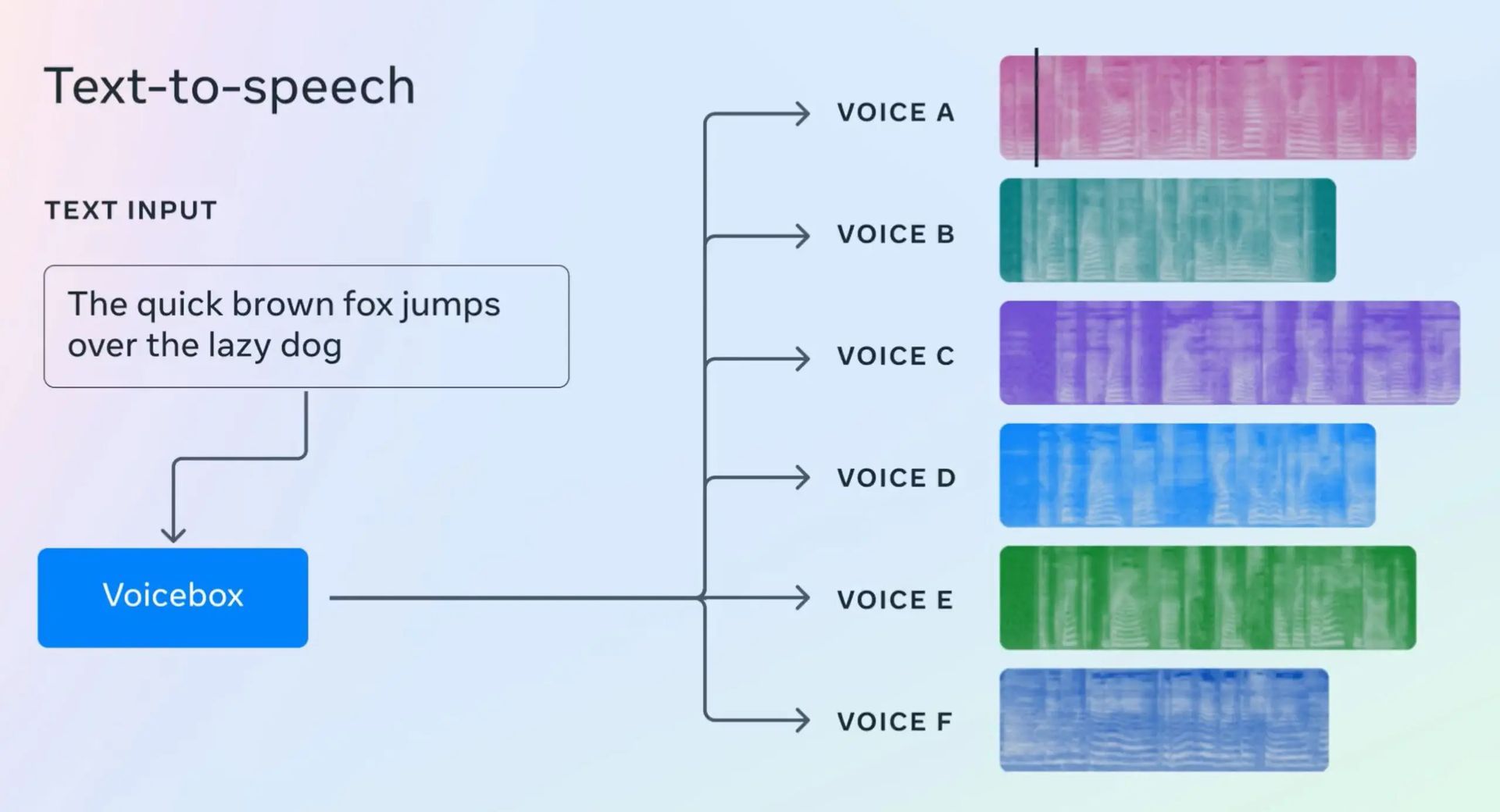In a recent announcement, Meta unveiled its latest AI development, the groundbreaking Meta Voicebox. This innovative speech-generation technology boasts impressive capabilities that surpass its competitors.
However, Meta has made the decision to delay its release due to concerns surrounding the potential misuse and harm that could result from its unrestricted availability. Especially regarding the feasibility of using Voicebox for the production of deepfake audios, Meta seems to deem it worthy to be cautious about the release. Below, you can check out the details about the features of Meta Voicebox and the reasons that it may be dangerous.

Why is Meta Voicebox risky to release?
The rise of AI technologies, including chatbots and voice generators, has raised concerns about potential abuses and the creation of deepfakes. Meta Voicebox, with its capabilities to mimic voices, presents a similar risk according to the company. Deepfakes, which involve the creation of fake audio or video content, can damage reputations, privacy, and credibility. Fraudsters may misuse Meta Voicebox to produce fake voicemail messages, impersonate individuals, or create fabricated videos to deceive and manipulate others.
Recognizing the potential risks associated with Voicebox, Meta has chosen to share audio samples and a research article instead of releasing the tool in a fully operational state. By doing so, Meta aims to foster understanding among academics and researchers about the potential of this technology. The company acknowledges that Voicebox represents an important step forward in generative AI research and looks forward to further exploration and collaboration in the audio domain.

Meta commits to responsible use
Meta is aware of the challenges posed by deepfakes and the potential for misuse and unintended harm associated with technologies like Voicebox. The company is actively working to address these concerns and intends to release a research paper along with a classifier tool. This tool will help distinguish between Voicebox-generated speech and genuine human speech, aiding in identifying instances of potential manipulation.
Despite the risks, Meta highlights the potential benefits of AI speech generation. Voicebox could revolutionize communication for individuals who are mute or have difficulties in expressing themselves, breaking down barriers to interaction. Furthermore, a real-time translation could become a reality, bringing us closer to the concept of a “universal translator” depicted in science fiction. Voicebox also offers content creators the ability to edit and improve recorded speech, allowing for seamless removal and replacement of problematic segments.
What is Meta Voicebox?
Meta Voicebox introduces a new era of speech generation by going beyond its specific training and excelling at tasks it was not originally designed for. Unlike previous voice-generator platforms, Voicebox can generate speech that sounds convincingly similar to the original source, even with minimal context provided. By utilizing text input and a brief audio clip, Voicebox creates fresh and authentic-sounding speech, imitating the featured speaker from the source clip. Here are brief summaries of its distinct features:
In-context text-to-speech synthesis: Voicebox, with its in-context text-to-speech synthesis capability, can generate speech by using a mere two-second audio sample as input. By matching the audio style of the sample, Voicebox excels at text-to-speech generation.
Cross-lingual style transfer: An intriguing feature of Voicebox is its ability to transfer styles across languages. By providing a speech sample and a text passage in English, French, German, Spanish, Polish, or Portuguese, Voicebox can generate a reading of the text in the specified language.
Speech denoising and editing: Voicebox’s in-context learning empowers it to perform seamless speech denoising and editing. It can effectively restore speech segments corrupted by short-duration noise or replace misspoken words without requiring a complete re-recording of the entire speech. Users can effortlessly identify and crop out noisy segments, instructing Voicebox to regenerate those portions.
Diverse speech sampling: Drawing insights from diverse real-world data, Voicebox produces speech that closely mimics how people naturally speak across the aforementioned six languages. This capability opens doors to generating synthetic data for improved training of speech assistant models. Experimental results demonstrate that speech recognition models trained on Voicebox-generated synthetic speech exhibit comparable performance to those trained on real speech, with a mere 1 percent degradation in error rates.

Meta text-to-speech AI has many possible future applications
Meta envisions Voicebox as a multipurpose tool with a wide range of applications. Virtual assistants and non-player characters in the metaverse could benefit from natural-sounding voices generated by Voicebox. Additionally, visually impaired individuals could have written messages read to them in the voices of their friends through AI assistance. Content creators would gain access to new tools for easily creating and editing audio tracks for videos, opening up possibilities for enhanced multimedia experiences.
Voicebox possesses remarkable capabilities, including the ability to edit, sample, and stylize speech, even without explicit training in these areas. It can generate high-quality audio clips and manipulate pre-recorded audio while preserving the style and content of the original recording. For instance, it can remove unwanted sounds like car horns or dog barking. The language versatility of Voicebox is equally impressive, as it can speak in six different languages and even bilingual combinations.

Meta’s Voicebox represents a significant advancement in AI-driven speech generation, promising numerous potential applications and benefits. However, the decision to delay its release reflects Meta’s commitment to responsible development and addressing the risks associated with the technology. By taking a cautious approach and actively working on mitigating potential misuse, Meta aims to ensure that Voicebox contributes positively to society while safeguarding against the harmful consequences that can arise from its unrestricted use.
If you are interested in the company’s futuristic developments, check out the new Meta tools that can maximize your impact on social media.





